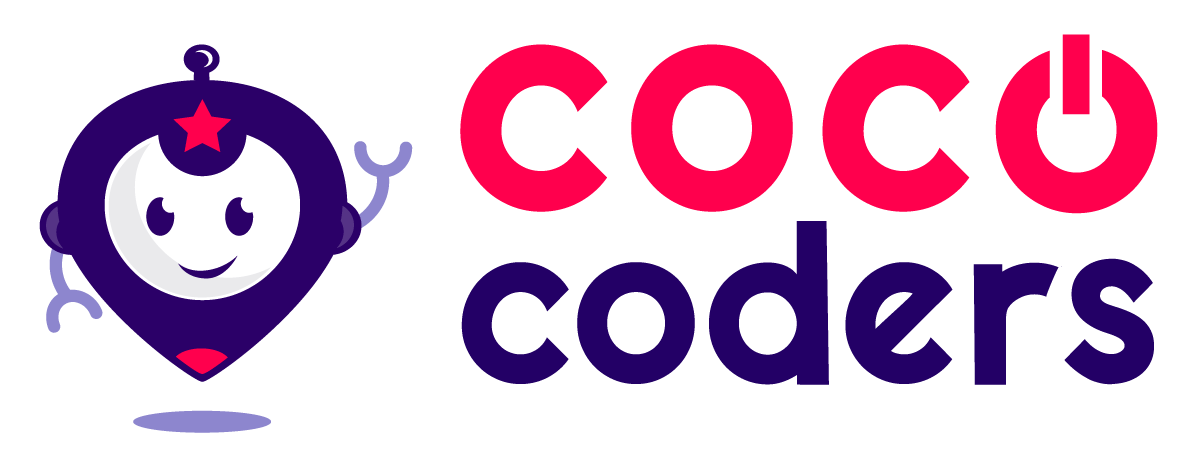Why Kids Should Learn Coding as a Second Language
In today’s tech-driven world, teaching kids to code is quickly becoming as important as teaching them to read or write. Coding, often referred to as the "language of the future," is not just about creating software; it’s about empowering young minds to think critically, solve problems, and adapt to an increasingly digital landscape. It’s becoming a basic form of literacy. For parents looking to give their children a competitive edge, coding as a second language offers unparalleled benefits. Here’s why your child should start coding and how it can shape their future.
The Importance of Learning to Code
1. Coding Is the Language of the Future
Coding is a universal language that transcends borders. Just as learning a spoken second language opens doors to new cultures and opportunities, coding equips kids with the skills to communicate with technology—a crucial asset in today’s global economy. Programming languages like Python, Javascript and Scratch are tools that enable kids to create apps, games, and websites, preparing them for future careers.
2. Coding Enhances Problem-Solving Skills
Coding challenges kids to break down complex problems into smaller, more manageable pieces. This process of "debugging" fosters analytical thinking and resilience—skills that are invaluable in school, the workplace, and life.
3. Coding Builds Creativity
Coding isn’t just about logic; it’s a creative outlet. Whether your child wants to design a game, animate a story, or build a website, coding empowers them to bring their ideas to life. This hands-on creativity encourages innovation and experimentation.
4. Improves Academic Performance
Learning to code strengthens skills in math, logic, and critical thinking. It’s no coincidence that students who code often excel in STEM (Science, Technology, Engineering, and Math) subjects. Learning to write code in a program such as JavaScript can also significantly support the process of learning a foreign language due to the cognitive, structural, and skill-building parallels between the two. Coding nurtures persistence and focus, essential traits for academic success.
The Benefits of Learning to Code
1. Coding Prepares Kids for Future Careers
The demand for tech skills is growing exponentially. By 2030, millions of jobs will require coding knowledge. Coding skills are increasingly helping workers solve problems in a variety of non-coding roles. Starting early gives kids a head start in fields like software development, artificial intelligence, and cybersecurity, ensuring they’re future-ready.
2. Coding Projects Teache Collaboration and Teamwork
Many coding projects involve working in teams to solve problems or build programs. This collaborative environment helps kids develop communication and teamwork skills, which are vital in any career path.
3. Coding Encourages a Growth Mindset
When kids learn to code, they learn through trial and error. Debugging errors teaches them that failure is a stepping stone to success. This growth mindset encourages resilience and adaptability, traits that benefit them in all areas of life.
4. Learning Coding Improves Language Learning Skills
Coding and spoken languages share similarities—both have syntax, grammar, and rules. Learning coding improves pattern recognition and memory, which can make it easier for kids to pick up other languages. The logical structure of coding also reinforces problem-solving skills that are useful in language acquisition.
See our blog: How Learning to Code Is Similar to Learning a Foreign Language
5. Learning To Code Expands Opportunities for Creative Expression
Coding allows kids to create digital art, design video games, or even write interactive stories. These projects enable them to express themselves in unique and meaningful ways, boosting their confidence and sense of accomplishment.
How to Get Your Child Started with Coding
1. Use Kid-Friendly Platforms
Introduce your child to coding with beginner-friendly platforms like Scratch, Code.org, or Tynker. These tools make coding fun and accessible with interactive tutorials and game-like interfaces.
Read our blogs iOS and Android Games That Will Teach Your Kids To code and What is Scratch: A Simple Guide For Parents Of Young Kids
2. Incorporate Coding into Everyday Learning
Many schools now offer coding as part of their curriculum. If your child’s school doesn’t, consider enrolling them in after-school coding clubs or online coding courses.
3. Encourage Hands-On Projects
Give your child opportunities to create real-world projects. Whether it’s designing a simple game, automating a household task, or building a personal website, practical applications make learning to code more engaging.
Try our Free Scratch project ‘Code your Own Adventure’
4. Support Their Interests
If your child loves gaming, encourage them to learn how games are made. If they’re into storytelling, show them how to create interactive stories through coding. Aligning coding with their passions keeps them motivated.
You might find our blog on ‘How to talk to your child about Roblox, A Parent’s Guide’ useful.
5. Be a Cheerleader, Not an Expert
You don’t need to be a coding wiz to support your child. Celebrate their successes, encourage them through challenges, and provide resources to help them grow.
Here are 10 Effective Ways to Support Kids Interested in Technology
Final Thoughts
Learning coding as a second language equips kids with skills that extend far beyond technology. It fosters critical thinking, creativity, collaboration, and a growth mindset, setting them up for success in an increasingly digital world. By encouraging your child to start coding today, you’re giving them the tools to navigate and thrive in the future.
Start Today
The journey to coding mastery begins with a single line of code. Explore beginner-friendly platforms, support your child’s interests, and watch as they develop the skills to shape their own digital futures. Coding is more than a skill—it’s a language that opens doors to endless possibilities.
Start your child’s coding journey with Coco Coders. In our weekly, online coding lessons your child can learn one-to-one with a dedicated teacher, or join a group of children of a similar age and experience to build coding projects together.




